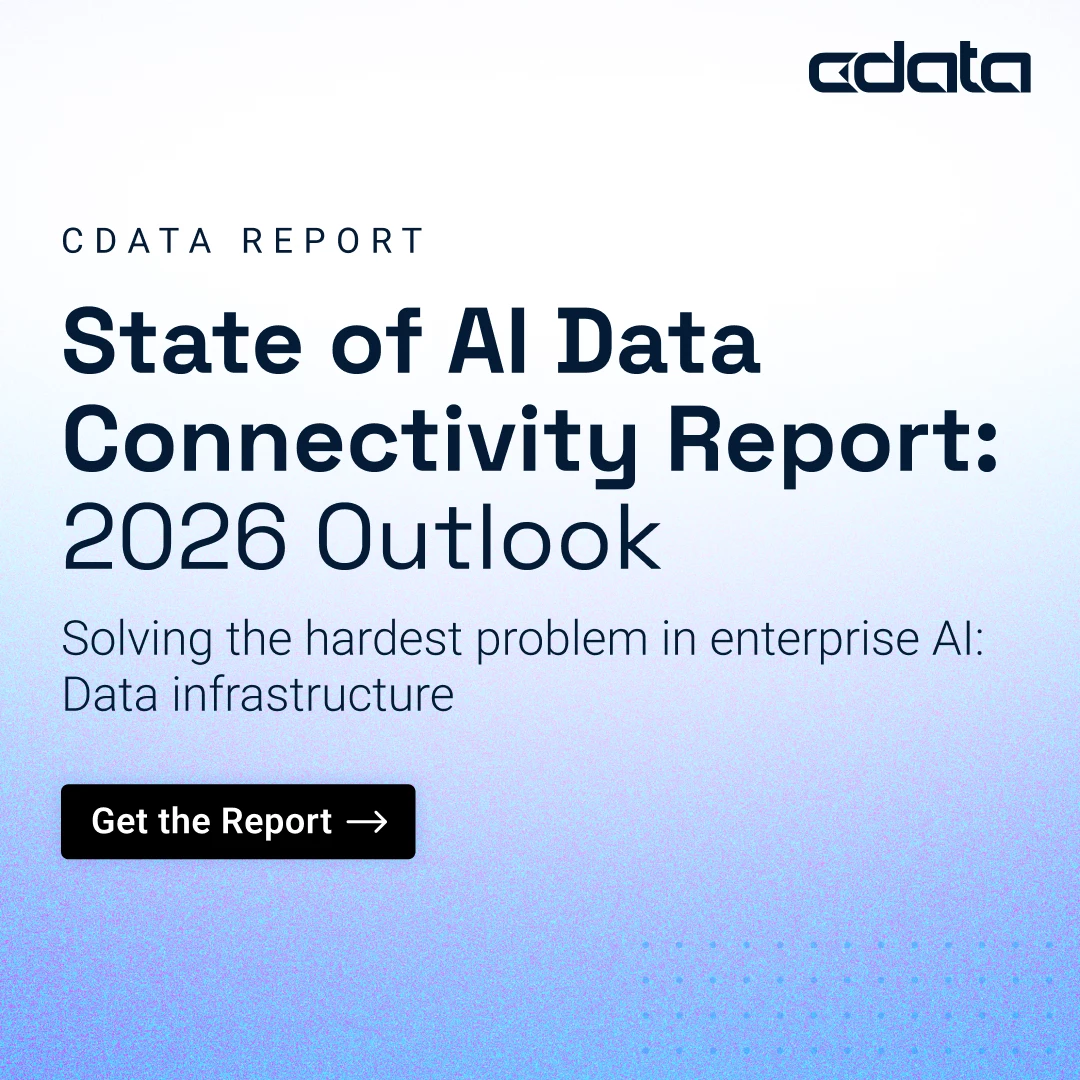We’re excited to announce the acquisition of Data Virtuality, a leading enterprise data virtualization provider. Below is a brief FAQ designed to provide answers to a few common questions regarding this news.
If you have additional questions not covered in this FAQ, please contact us at [email protected] and a member of our team will assist you.
What is CData Software?
CData Software is a leading provider of data access and connectivity. Our standards-based solutions streamline data access and insulate customers from the complexities of integration across ETL/ELT, data virtualization, B2B data integration and embedded connectivity. Leading applications across SaaS, data management, integration, analytics & BI, data science, AI & machine learning, and data governance depend on CData to expand the connectivity offered within the platforms they provide their customers.
Ultimately, CData strives to simplify connectivity between all of the applications and data sources that power business operations, making it easier to unlock the strategic value of data wherever it resides.
What is Data Virtuality?
Data Virtuality GmbH is a software company that provides data integration and virtualization solutions. Their flagship Data Virtuality Platform is a unified solution for real-time data access, modeling, governance, and delivery that enables organizations to deliver value from distributed data more effectively.
The platform advances the technological concept of data virtualization and can be built on top of existing and in new data landscapes for faster time-to-insights. With global enterprise customers across a range of industries including BSH Hausgeräte, New York University (NYU), Crédit Agricole, and PartnerRe, Data Virtuality addresses the intricate data integration and management challenges faced by large organizations. With more than 200 pre-built connectors, Data Virtuality powers modern data architectures including hybrid- and multi-cloud, data fabric, and data mesh.
Why did CData acquire Data Virtuality?
The Data Virtuality Platform brings an enterprise-grade data virtualization platform to the CData product portfolio that is architected to handle a scale and complexity of data management use cases that is relatively unmatched in the industry. By joining forces with Data Virtuality, CData is able to expand the size and scope of challenges their products are able to address for enterprise customers. Teaming up with Data Virtuality will also strengthen CData’s presence in the European market. Data Virtuality is headquartered in Leipzig, Germany and has offices and team members distributed across Europe.
How and where is Data Virtuality used?
The Data Virtuality Platform provides an enterprise-scale data virtualization platform combining live data access and ETL/ELT in a single, comprehensive data management solution that supports SaaS, on-premises, and hybrid deployment.
Connect to data: Data Virtuality supports connecting to multiple data sources (relational and non-relational) using SQL-based querying.
Create centralized data logic: Data Virtuality enables users to create centralized data logic that includes both business logic, as well as the logical connections between different systems. This layer can easily be implemented by using SQL views and/or stored procedures.
Make data accessible: Data Virtuality supports standard interfaces (JDBC, ODBC, REST, OData) to deliver data to data consumers via reporting tools, advanced analytics tools, or custom programs in various programming languages.
What is the future of Data Virtuality?
Data Virtuality will continue development as a dedicated product line within CData.
The Data Virtuality team, including Data Virtuality founder and CEO Dr. Nick Golovin, will join CData Software and continue to maintain and accelerate development of the Data Virtuality Platform.
By joining forces with CData, Data Virtuality will become part of the world's most comprehensive portfolio of standards-based integration solutions. CData has also already started to increase resources dedicated to accelerating development and go-to-market activities for Data Virtuality. For Data Virtuality customers, the CData acquisition brings access to enhanced support services and greater integration possibilities.
How does this acquisition benefit Data Virtuality customers?
For Data Virtuality customers, the CData acquisition brings access to all new support services and an infusion of new resources to accelerate the platform’s roadmap.
In addition, the CData connectivity product portfolio offers a range of integration solutions for Data Virtuality customers with support for over 300+ enterprise data sources, including a broad range of CRM systems, ERPs, marketing automation tools, accounting platforms, and other applications and databases.
How will this affect Data Virtuality services and licensing?
Data Virtuality will continue to provide all services with the same dedication to product development and customer outcomes. The company’s German legal entity will remain intact so the contracts will continue under German/European law. From a licensing perspective, Data Virtuality will continue to focus on providing the absolute best value within integration from a price-to-performance perspective. This approach to pricing is an operating principle shared by CData and Data Virtuality. As part of the integration, we plan to utilize the CData connector framework to extend the integration capabilities of Data Virtuality, providing ETL and live integration for dozens of new data sources and warehousing destinations.
How do CData’s products align with Data Virtuality?
CData and Data Virtuality are aligned around the principle that modern data platforms should support all integration styles, including data virtualization for live data access and data replication for data historization and improved performance so data teams can concentrate on enabling their business use cases. The product offerings of both companies revolve around providing support for these different integration patterns, and each driver in the CData connector library of over 300 enterprise data sources supports both data virtualization and replication.
As a Data Virtuality customer, what other CData products could be relevant?
At CData, we offer all types of data connectivity and integration solutions. The CData offerings that will be of interest to you will be largely dependent on how you use Data Virtuality today and the connectivity needs of your organization.
To better understand the various integration offerings provided by CData, visit the products page on our website.

